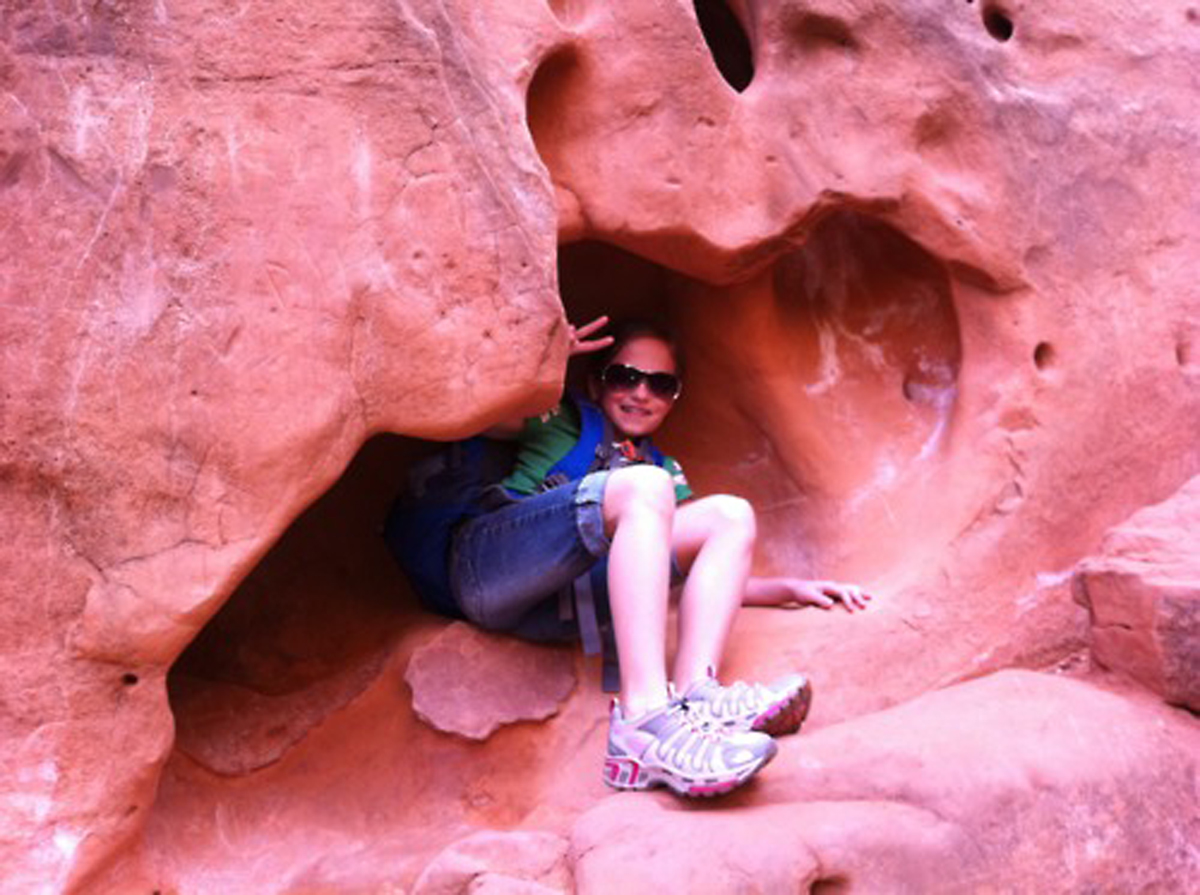
Sept. 6, 2011 – With the rise of global homogenization and a steep decline in time spent outdoors over the past few decades, are we as humans losing our love of place? If so, how does this loss affect our chances of — and even desire to — conserve and protect the world’s natural resources?
In an engaging lecture on Sept. 27th at the University of Utah — titled the Extinction of Experience: Youth, Nature, and Sustainability in the Digital Age — Dr. Scott D. Sampson, Research Curator at the Natural History Museum of Utah and Adjunct Professor of Geology and Geophysics at the U, will address how we might broker a new human-nature relationship in this globally-interconnected digital age.
A renowned paleontologist, biologist, and educator, Dr. Sampson served as the primary scientific consultant and host of the Discovery Channel’s Dinosaur Planet, and is widely known as “Dr. Scott” on the PBS series Dinosaur Train.
Weaving together globalization, the rise of the internet, and biodiversity loss with evolutionary biology, anthropology and more, Dr. Sampson will present his provocative new idea, the Topophilia Hypothesis, which proposes we all have an innate bias to form emotional bonds with nature and how this may be the essential key to environmental conservation.
Presented by Continuing Education at the University of Utah in partnership with the Natural History Museum of Utah, Dr. Sampson’s lecture will summarize recent efforts to foster emotional connections with nature—in particular among youth—and offer novel ways to redefine our relationship with the natural world.
“Dr. Sampson’s work has broad cultural implications that span parenting, education, architecture, city planning, politics, religion, and the arts,” said Dr. Sarah George, Executive Director of the Natural History Museum of Utah. “His message is vital for our time.”
According to the U.S. Environmental Protection Agency, the average American spends 90% of their time indoors. Studies have shown that children are spending half as much time outside as they did 20 years ago, with the average U.S. child spending just seven minutes a day in unstructured outdoor play — in contrast to an average seven hours a day looking at electronic screens.
“Spending time outdoors can dramatically improve the health of our children, in addition to helping them to know and love the land around them,” said Sandi Pershing, Assistant Vice President for Continuing Education. “If we don’t know a place, how can we love it? And if we don’t love it, how can we work to protect it?”
The 61st Annual Frederick W. Reynolds Lecture will be held on Sept. 27, 2011 at 6:30 p.m. in the Rice Eccles Stadium Varsity Room, followed by a dessert reception and book signing. The lecture is free and open to the public — and will include hands-on activities for adults and kids over 8 beginning at 5:30 pm — but RSVP is required. To RSVP, call 801-585-0911, or visit continue.utah.edu/reynolds.
About the Frederick W. Reynolds Lectures at The University of Utah
Each fall, Continuing Education at The University of Utah presents the annual Frederick W. Reynolds lecture in order to answer hard questions, provide insight into exciting aspects of the University and give the community a glimpse into the future of higher education in Utah. Many distinguished university faculty members have taken part in the annual lecture, always providing a stimulating (and sometimes controversial) evening for audience members. Free and open to the public, the series opens the University and academia to the community, providing a forum for citizens to learn more about what is happening at the U.
About Dr. Sampson
Scott Sampson is a renowned dinosaur paleontologist, evolutionary biologist, and science communicator who presently serves as Research Curator at the Utah Museum of Natural History, and Adjunct Associate Professor in the Department of Geology and Geophysics, University of Utah. He also sits on the board of the directors of the Denver Museum of Nature and Science. Sampson has published numerous scientific and popular articles, and has lectured extensively to audiences of all ages on dinosaurs and evolution.
Sampson was the primary scientific consultant and on-air host of the four-part Discovery Channel series Dinosaur Planet. Appearing as “Dr. Scott the Paleontologist,” he is presently serving the same pair of roles for the PBS KIDS television series Dinosaur Train, produced by the Jim Henson Company. Sampson recently completed a book, Dinosaur Odyssey: Fossil Threads in the Web of Life (University of California Press, 2009), the first comprehensive review of dinosaur paleontology for a general audience in more than two decades.
His research has focused on the ecology and evolution of Late Cretaceous dinosaurs, and he has conducted fieldwork in a number of countries, including Kenya, Zimbabwe, South Africa, Madagascar, Mexico, the United States, and Canada.
